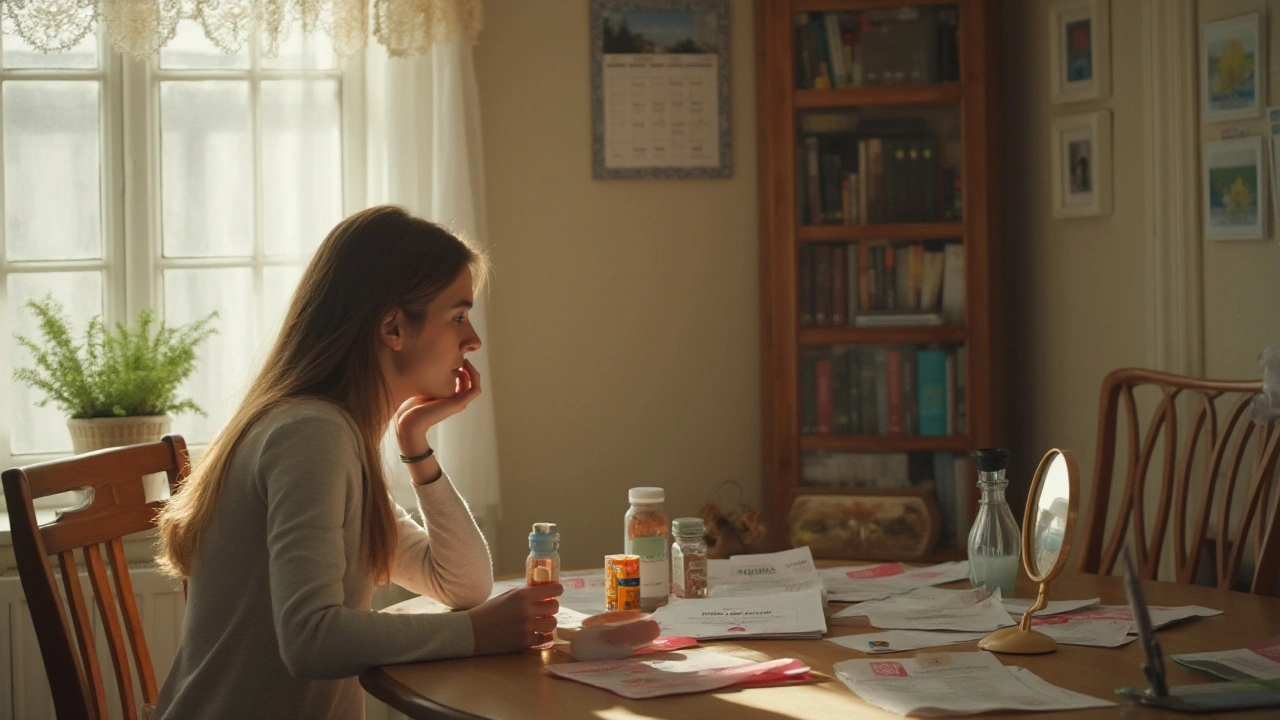Coping Strategies: Practical Tools You Can Use Today
When stress spikes or anxiety shows up, you don’t need a long plan — you need a few reliable moves you can use right away. Start with a quick three-step routine: slow your breath, ground your body, then pick one small action that gives you control. Those three steps lower the flood of stress chemicals and make clearer thinking possible.
Quick, Immediate Tools
Breathing: Try a 4-4-6 pattern — inhale 4 seconds, hold 4, exhale 6. It’s simple and slows your heart rate. Grounding: name 5 things you can see, 4 you can touch, 3 you can hear, 2 you can smell, 1 you can taste. Muscle release: tense one muscle group for 5–7 seconds, then let go and notice the drop in tension.
Use these in public, at work, or in bed. They don't remove problems, but they stop panic and give you space to choose your next step.
Daily Habits That Build Resilience
Small, steady habits matter more than dramatic fixes. Aim for regular sleep, move your body most days, and eat simple, balanced meals. Short daily meditation or a 5-minute gratitude note can shift your baseline mood after a few weeks. If stress triggers eating, try filling snacks like nuts, yogurt, or fruit paired with protein — they steady blood sugar and reduce cravings.
Creative outlets help too. Drawing, singing, or dancing releases stuck emotions when words fall short. If you want guided options, check practical pieces like our mindfulness techniques, creative arts therapies, and daily meditation guides for step-by-step ideas.
Body-based care is also a strong coping strategy. Sports massage eases muscle tension and speeds recovery. Aromatherapy or a warm bath can lower physical stress signals. These aren’t just pampering — they change how your nervous system feels, which changes how you think.
Change your thinking without forcing happiness. Reframe one thought at a time: when you notice “I can’t do this,” ask “What’s one small step?” or “What would make this easier right now?” Reframing isn’t lying to yourself — it’s choosing a helpful question over a harmful conclusion.
Make a simple plan for triggers. Write down two things that calm you (a walk, a short guided breath), one thing that helps you think (a quiet room, a notebook), and one person to call if you need support. Keep this list where you can see it.
When coping strategies aren’t enough, ask for help. If anxiety or panic disrupts work, sleep, or relationships, talk to a clinician or trusted professional. Short-term therapy, a check-in with your GP, or a referral to a therapist can change the course fast.
Try one immediate tool and one daily habit this week. Notice the difference. If you want specific how-tos, browse our posts on mindfulness, relaxation, creative therapies, and practical recovery tips to find step-by-step guides that match your life.
Health Anxiety Stories: Real People Share Coping Tips
Real stories and practical tips help you understand and manage health anxiety, offering coping tools, professional guidance, and community support.
View MoreUnderstanding Health Anxiety: Managing the Fear of Illness
Health anxiety is an overwhelming fear of being seriously ill, often leading individuals to constantly monitor their health and frequently seek reassurance. This form of anxiety can significantly impact daily life, causing distress and disrupting normal routines. Understanding the causes and symptoms is crucial for managing this condition. Practical strategies, such as mindfulness and cognitive-behavioral techniques, can help sufferers regain control. With the right approach, it is possible to shift focus from fear to a balanced lifestyle.
View MoreUnderstanding and Overcoming Health Anxiety
Health anxiety is a condition where individuals constantly worry about their health, often fearing they have serious illnesses despite medical reassurance. This article explores the psychological impact of this anxiety, the common triggers, and the ways to cope effectively. You'll find essential insights into recognizing patterns and behaviors associated with health anxiety. Practical tips will also be shared to help ease these worries and cultivate a healthier mindset. Empower yourself with knowledge to manage health anxiety better.
View MoreUnderstanding the Psychology Behind Health Anxiety: Insights and Help
Health anxiety can significantly impact one's quality of life, often leading individuals to believe they have serious medical issues. This article explores the psychological factors behind health anxiety, shares surprising facts, and offers practical tips for managing and alleviating these worries.
View More








